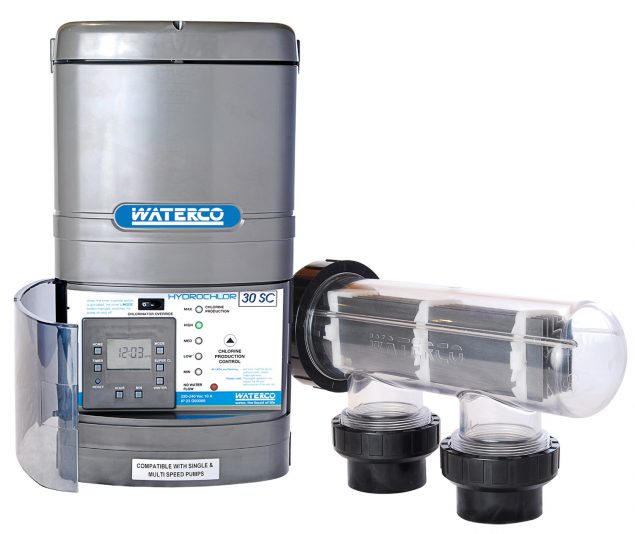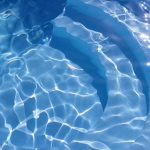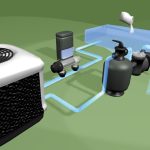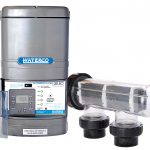There are plenty of ways to keep your pool clean this summer — both chlorine-based and otherwise. If you want to go down the chlorine road, the next questions you must ask is what kind is best for you and your family. Here is Waterco’s guide to make this process smooth and easy
Salt Water Chlorination
Indoor and outdoor pools are contaminated by a number of human-borne and airborne contaminants, which can come from a variety of sources. These include: sweat, bathing oils/cosmetics, bacteria and other atmospheric pollutants. For this reason, any treatment process must deal with a diverse number and kind of elements which vary over time based on the time of day and in the case of outdoor pools, the local atmospheric conditions.
Chlorine, is one of the most effective treatment to make water potable or safe to drink. Chlorine’s powerful disinfectant qualities come from its ability to bond with and destroy the outer surfaces of bacteria and viruses. Chlorination is one of the most widely used methods to safeguard drinking water supplies.
Chlorine Production by Electrolysis
Through the process of electrolysis, a saline solution passes over an electrolytic cell, then the saline solution is separated into two components: chlorine and sodium. The chlorine is instantaneously transformed into Hypochlorous acid, this is the chlorine form that kills algae and other harmful organisms in the water. Then the chlorine and sodium re-bond and become natural salt again, the process continues as long as the electrolytic cell is functioning correctly.
A chlorine generator’s main function is to produce chlorine for the pool. This keeps a residual of chlorine in the pool that prevents algae from growing.
Why Salt Water?
Ocean water has a salt content of around 35,000 parts per million (“ppm”). Humans have a salt taste threshold of around 3,500 ppm. The Waterco’s salt chlorinator requires a salt content of 4000 – 6000 ppm in the pool. Swimming in a mild saline solution is much like taking a shower in soft water. In a salt-water pool the water feels smooth, your skin feels smooth and many people feel more refreshed.
Waterco Salt Water Chlorinator
With a Waterco salt water chlorinator you‘ll practically eliminate the need of adding chlorine to your pool and dedicate more time enjoying it. Just add the required amount of pool salt and the Hydrochlor will generate the chlorine required to maintain your pool safe and sanitise.
A salt-water chlorinated pool requires much less attention than a chlorine pool. A salt water pool provides a more comfortable swimming environment. Salt water feels better and is less irritating to the body than standard chlorinated water.
A Waterco salt water chlorinator is typically plumbed directly in-line with the pool equipment, typically after the heater.
A Waterco salt water chlorinator consists of a power pack (to supply power to the cell) and a Salt Cell (where chlorine is produced).
Salt Chlorination Frequently Asked Questions
Is there a difference between ‘salt chlorinator’ chlorine and ‘normal’ chlorine?
A salt chlorinator makes chlorine the same way a chlorine factory does. The difference is that it is manufactured in your pool. Liquid chlorine is approximately 12.5% pure, whereas Electrochlor’s chlorine is 100% pure.
Will I ever need to add standard pool chlorine again?
From time to time it may become necessary to add some chlorine to the pool. This may be due to heavy rain or if the chlorine level needs to be shocked back up.
Does the salt damage pool equipment?
No. Low levels of salt have relatively insignificant corrosive effects on pool fittings and equipment.
How do I get started?
It’s easy! After installing your salt chlorinator, you simply add the recommended amount of salt to your pool and choose your desired chlorine level.
How much salt will I need?
1 kg of salt in 1,000 litres of water raises the salt level by 1,000ppm. Therefore, 420 kg of salt will raise a 70,000 litres pool from 0 ppm to 6,000 ppm.
What type of salt should I use?
High purity salt, it is important that the salt does not contain additives. Any common salt (like table salt) usually has an additive that may have staining properties.
For more information
Waterco 36 South Street, Rydalmere NSW 2116
Phone 02 9898 8686
Website waterco.com


















